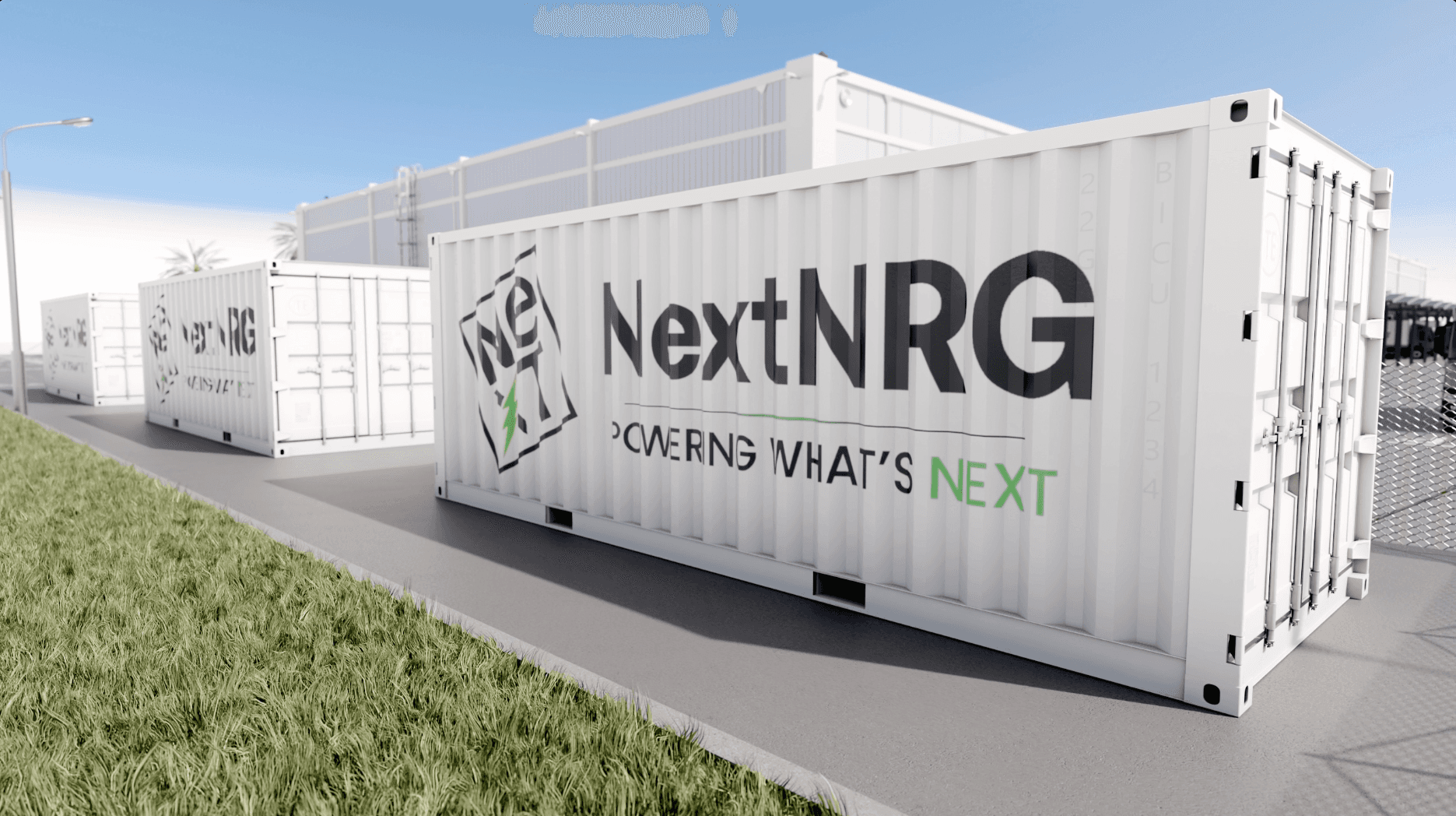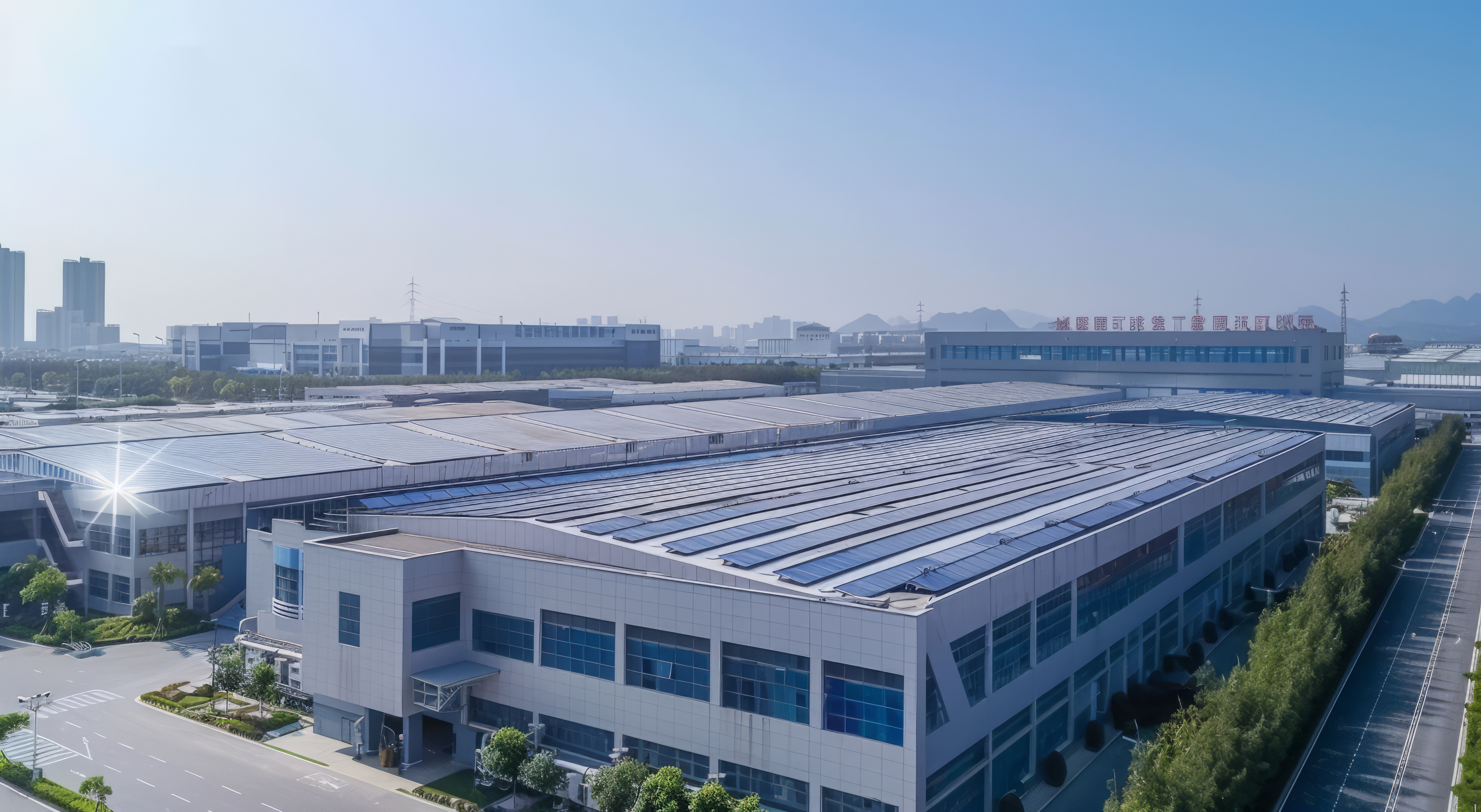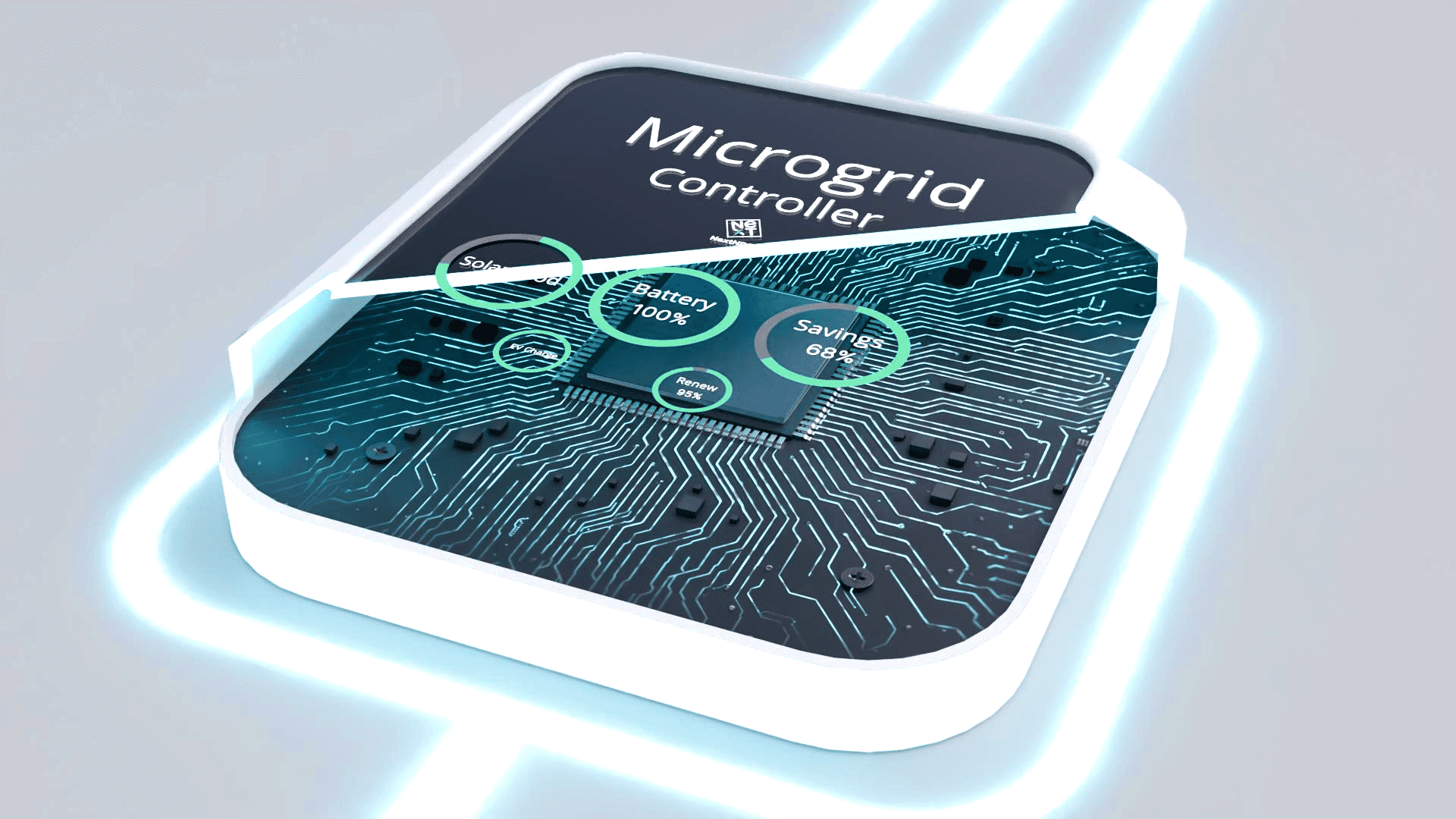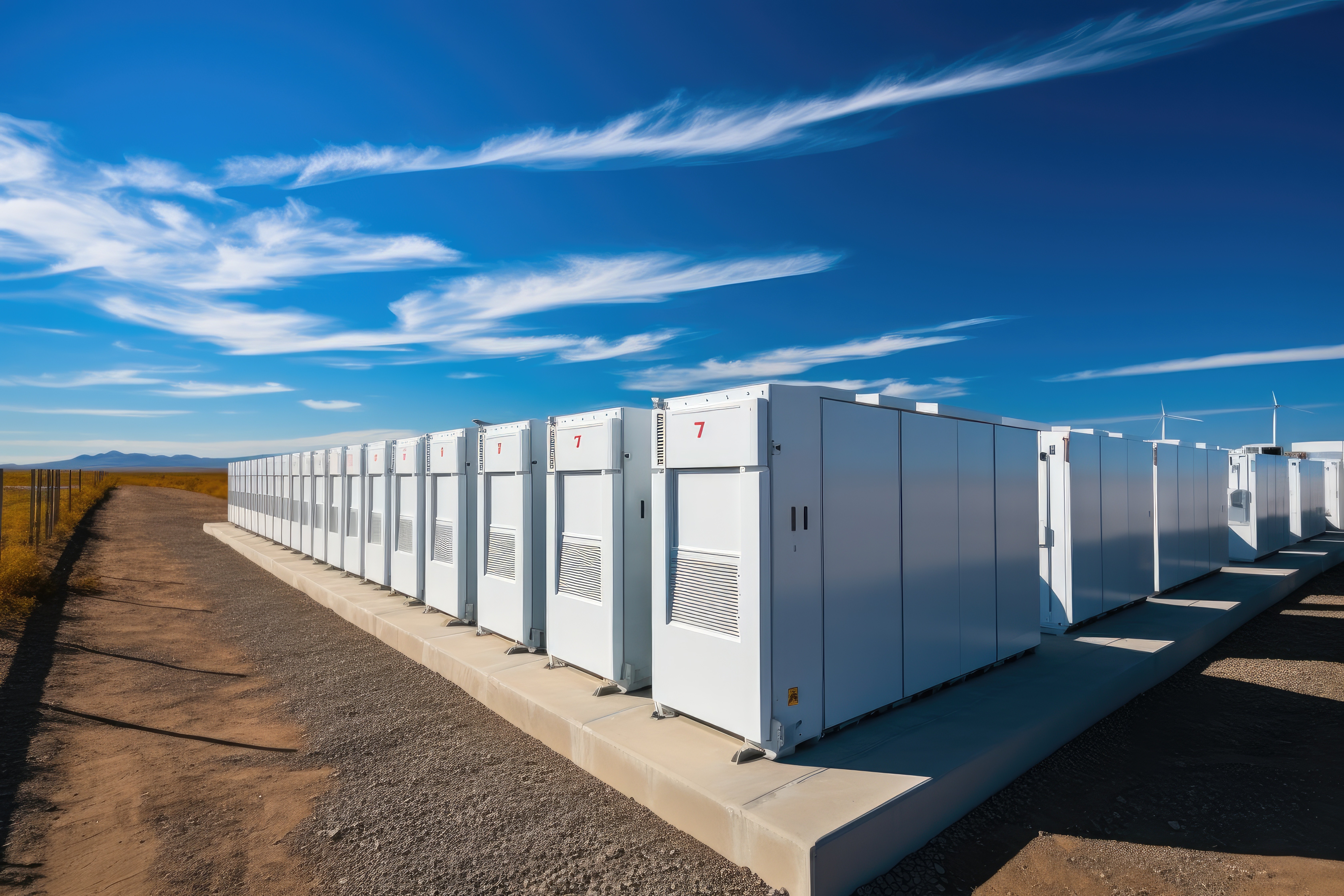
Feb 3, 2025
As the demand for energy continues to evolve, smart grid technology has emerged as a critical solution, transforming how we manage energy resources. Smart grid companies are pivotal in spearheading technological advancements that ensure efficient energy distribution and enhance grid resilience. These companies leverage innovative solutions to integrate diverse power sources, allowing for real-time data analysis and predictive capabilities that empower utilities to respond effectively to changing energy needs.
One standout in this realm is Next NRG, recognized for its cutting-edge Smart Microgrid technology. This solution optimizes grid efficiency by seamlessly integrating various energy sources, ensuring a reliable and secure energy supply. Meanwhile, Next NRG's advancements in Wireless EV Charging play a crucial role in managing energy demands, further supporting the global transition to sustainable energy systems.
Harnessing AI and machine learning, Next NRG is paving the way for predictive energy management that significantly improves the efficiency of solar plants, boasting accuracy rates of up to 95%. This technology not only enhances the profitability of renewable energy generation but also refines fleet services and public access solutions, ensuring electric vehicle operations are streamlined and user-friendly. Embracing these innovations is essential for a greener, cleaner future.
Overview of Smart Grid Technologies
Smart grid technologies leverage advanced systems and integrated solutions to enhance energy efficiency, reliability, and sustainability. By harnessing the capabilities of artificial intelligence (AI), the Internet of Things (IoT), and renewable energy sources, you will discover a transformative approach to energy management.
The Role of AI and IoT in Smart Grids
AI and IoT are pivotal in optimizing smart grids. Using IoT devices, sensors capture real-time data on energy consumption and generation, which feeds into AI algorithms. This data-driven approach helps predict demand and identify inefficiencies.
AI enhances grid resilience through predictive maintenance, assessing potential failures before they occur. This not only reduces downtime, but also lowers operational costs. As you integrate these technologies, you can expect improved energy distribution and proactive decision-making capabilities, ultimately leading to a more efficient and stable energy supply.
Integration of Renewable Energy Sources
In the pursuit of sustainability, integrating renewable energy sources into smart grids is essential. You will find that diverse energy resources, such as solar, wind, and hydro, can be managed effectively with smart grid technologies.
Next NRG specializes in optimizing the blend of these energy sources to enhance grid resilience and efficiency. By enabling seamless integration, you can ensure a reliable supply while minimizing carbon emissions. Moreover, intelligent forecasting driven by AI allows for better management of fluctuating renewable energy levels, ensuring you maximize their benefits.
Smart Metering and Distribution Automation
Smart metering systems provide real-time data on energy usage, enabling you to make informed decisions about consumption. These advanced meters facilitate two-way communication between utilities and consumers, allowing for dynamic pricing models and demand response programs.
Distribution automation enhances the reliability of electricity distribution. With features such as automated fault detection and self-healing capabilities, you can maintain service continuity under varying conditions. Next NRG’s technologies contribute significantly to smart meter functionalities and distribution automation, ultimately optimizing your energy management processes.
Leading Smart Grid Companies
The smart grid landscape is evolving rapidly, with key players driving innovation and performance. Among these leaders, companies like Itron, Siemens, Cisco, and General Electric are making significant strides in various aspects of smart grid technology, enhancing energy management and communication.
Itron and Smart Metering Solutions
Itron specializes in advanced metering solutions that facilitate real-time data collection and analysis. Their smart meters provide utilities with critical insights into consumption patterns, enabling better demand management and efficient resource allocation. With capabilities in both water and energy metering, Itron’s technology supports grid optimization by reducing outages and improving customer engagement.
By leveraging cloud-based platforms, Itron enhances scalability and data accessibility. Utilities can utilize these metrics to forecast demand, manage energy loads, and effectively plan maintenance activities. This innovative approach positions Itron as a key player in transforming traditional grids into smart, responsive systems.
Siemens' Grid Control Innovations
Siemens is at the forefront of smart grid control technologies, promoting reliability and efficiency in power delivery. Their solutions encompass a wide range of applications, from automation to data management. Siemens’ grid control innovations use advanced algorithms and real-time monitoring to optimize grid performance.
This technology allows for the integration of renewable energy sources, essential for sustainability goals. Siemens also emphasizes cybersecurity, ensuring robust protection against potential threats. With these innovations, Siemens is redefining standards in grid management, making them indispensable in the smart grid industry.
Cisco's Communication Technologies
Cisco's expertise in networking and communication technologies is vital for smart grid efficiency. They provide the necessary infrastructure that allows for seamless data transmission between devices. Their secure networking solutions enable real-time monitoring and management of energy systems.
With capabilities in IoT and data analytics, Cisco ensures devices communicate effectively, supporting grid resilience. Their role in establishing reliable communication pathways aids utilities in responding swiftly to outages and system failures. This incorporation of communication technologies exemplifies Cisco's pivotal position in the smart grid sphere.
General Electric and Energy Management
General Electric (GE) offers comprehensive energy management solutions that enhance grid efficiency and reliability. Their technologies foster the integration of diverse power sources, crucial for modern energy demands. GE focuses on predictive analytics, helping utilities anticipate issues before they escalate.
By optimizing grid operations through data-driven insights, GE significantly reduces transmission losses and improves service delivery. Their initiatives also align with sustainable practices, further solidifying GE’s role as a leader in the energy sector. Additionally, GE's smart microgrid solutions allow for localized energy management, adapting easily to varying demands.
Next NRG stands out with its smart microgrid and energy initiatives. This company integrates diverse power sources, optimizing grid efficiency and resilience, ensuring a secure energy supply. Their advancements in wireless EV charging also play a significant role in redefining energy management, aligning with Next NRG's commitment to a cleaner future.
Economic and Environmental Impact
The integration of smart grid technologies significantly enhances energy efficiency and contributes to sustainability efforts. This section delves into how these advancements support climate change initiatives and promote renewable energy adoption.
Energy Efficiency and Cost Reduction
Smart grids optimize energy management by integrating multiple power sources. This allows for more efficient distribution, reducing energy losses and operational costs.
For instance, with technologies like those from Next NRG, you can achieve higher grid efficiency and resilience. This integration minimizes reliance on fossil fuels, leading to significant cost savings and enhanced energy utilization.
Key benefits include:
Reduced energy waste through real-time monitoring and management.
Lower operational costs as a result of automated grid adjustments.
Increased renewable energy usage from local solar and wind sources.
These mechanisms collectively contribute to a more stable and economically viable energy landscape.
Sustainability and Climate Change Considerations
The shift towards smart grids plays a critical role in addressing climate change. By facilitating cleaner energy solutions, you contribute to significant reductions in greenhouse gas emissions.
Next NRG's approach to sustainable energy solutions emphasizes the importance of wireless EV charging and smart microgrid technologies. These systems provide reliable energy management while incorporating renewable resources, demonstrating a commitment to sustainability.
Key elements include:
Integration of renewable energy which supports the transition to clean energy sources.
Enhanced resilience against extreme weather events, bolstering infrastructure stability.
Real-time analytics that improve predictive capabilities for energy demand and resource allocation.
By prioritizing these factors, you support long-term sustainability and combat climate change effectively.
Challenges and Opportunities
Smart grid technology opens new avenues for energy distribution while also presenting various challenges that need to be addressed. Understanding these aspects is crucial for enhancing grid reliability and stability, which are vital for the integration of renewable energy sources and electric vehicles.
Addressing Smart Grid Challenges
One of the primary challenges in smart grid implementation is the initial costs associated with upgrading infrastructure. Many utilities face financial constraints when trying to modernize their existing grids. Additionally, technologies must be integrated seamlessly to support load balancing and energy distribution effectively.
Cybersecurity is another significant concern. As the grid becomes more digitized, it is vulnerable to cyber attacks that could disrupt services. Continuous investment in security measures is paramount to protect sensitive data and maintain grid integrity.
Moreover, achieving grid reliability requires collaboration among various stakeholders to ensure consistent performance under dynamic conditions. This adaptability is vital for accommodating the growing number of electric vehicles on the road, which necessitates further infrastructure enhancement.
Investment and Smart Grid Market Size
The market for smart grids is expanding rapidly due to increasing demand for efficient energy solutions. The global smart grid market is projected to reach several billion dollars by 2027, driven by technological advancements and regulatory support.
Investment is not only essential for building new infrastructure, but also for retrofitting existing systems. Next NRG stands out as a leader in this area, optimizing grid efficiency through advanced technologies. Their focus on Smart Microgrid solutions illustrates how investment can lead to a more resilient energy supply, mitigating risks associated with outages.
Public-private partnerships are also critical in scaling smart grid projects and ensuring sustainable development. By actively channeling funds and resources, the smart grid movement can address current shortcomings while paving the way for future innovations.
Grid Reliability and Security
Achieving reliable smart grid operations hinges on effective management of diverse energy sources. This involves integrating renewable resources while maintaining stability in energy distribution. The enhancement of grid reliability can be accomplished through precise monitoring and sensors that provide real-time data.
Next NRG exemplifies this approach with its focus on secure energy management. Their solutions are designed to optimize grid performance, ensuring that energy supply remains secure and reliable. The technology allows for independent grid reconnections, bolstering resilience against disruptions.
Investing in AI/ML technology is another crucial factor for enhancing grid stability. Predictive analytics can forecast energy demand accurately, significantly increasing the efficiency of energy management systems. This proactive approach enables utility companies to anticipate issues before they arise, fostering a more stable environment for consumers.
Future Trends and Innovations
The landscape of smart grids is evolving rapidly, characterized by technological advancements in infrastructure, renewable energy integration, and refined grid management systems. These developments aim to enhance efficiency, support sustainability, and ensure reliable energy production.
Smart Infrastructure and Smart Cities
Smart infrastructure plays a pivotal role in the development of smart cities. By implementing IoT sensors and real-time data analytics, cities can optimize energy use and enhance resource management. For instance, smart streetlights can adjust brightness based on activity, significantly reducing energy consumption.
The integration of platforms like Next NRG into urban planning allows for intelligent energy distribution. This integration not only supports sustainable urban growth but also enhances public safety and efficiency. You can expect continuous improvements in connected devices that will elevate the functionality of urban environments, making them more resilient against climate-related challenges.
Renewable Technologies and Energy Storage Systems
Renewable energy technologies are becoming increasingly vital in today's energy landscape. Wind, solar, and other renewable sources are essential for reducing reliance on fossil fuels. Utility-scale energy storage systems enable the capture of excess energy, ensuring a steady supply even during peak demand.
Next NRG is at the forefront, optimizing these technologies to enhance the efficiency of Smart Microgrids. By integrating diverse power sources, you can experience an optimized grid resilience. Electric vehicle (EV) integration into energy systems is also critical, and energy management initiatives support seamless transitions between power sources.
Advancements in Grid Automation and Management
Grid automation focuses on enhancing system reliability and efficiency through advanced technologies. Introducing AI and machine learning into grid management enables predictive maintenance and optimal resource allocation. This ensures that potential outages are addressed proactively.
Next NRG excels in harnessing these advancements to improve energy management. With precise sensor data analytics, you gain insights necessary for better decision-making. The solutions provided offer enhanced reliability and security, ultimately transforming energy production and consumption patterns. The future of energy management relies heavily on these innovations to create smarter, interconnected grids.
Don’t Miss Out
Join our newsletter to get latest insights for your brand growth!





